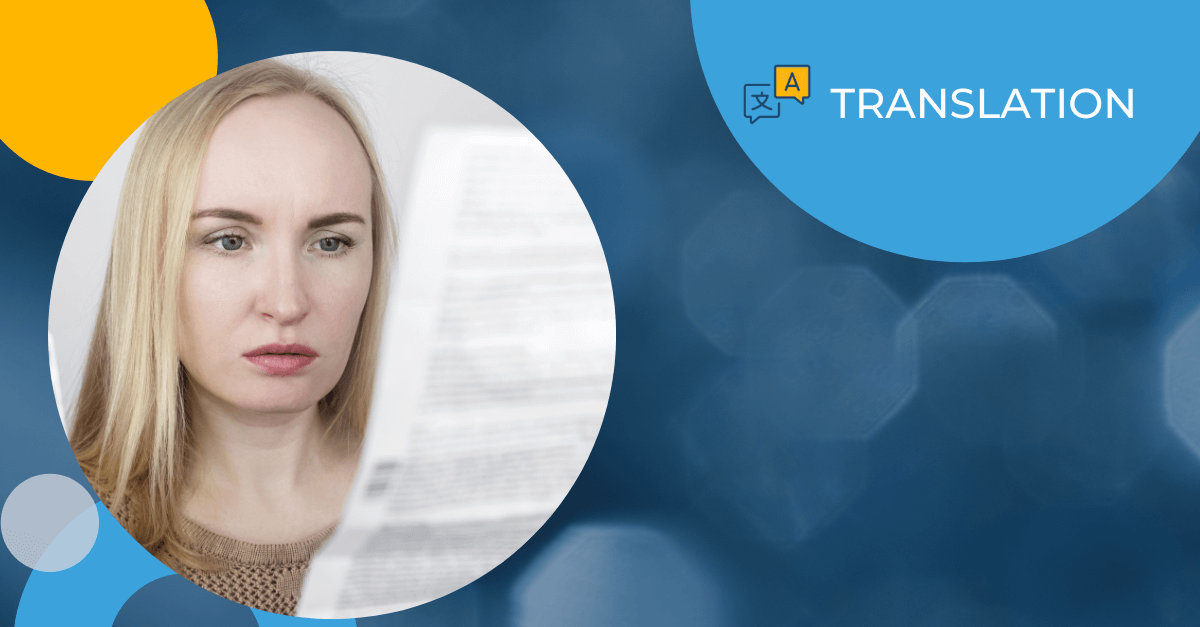Many organizations often require technical translations of documentation to address international marketplaces. Technical translations range from simple products for consumer markets to complex products or services for practitioners and pilots. Whatever the case, any documentation carrying your organization’s branding will require significant care to strengthen your organization’s accessibility and reputation successfully.
There are typically several elements to consider when assessing any language service provider (LSP) for your technical translations, including quality, cost, and turnaround time. The goal, of course, is to ascertain which partner can provide the best quality translation in the fastest time at a reasonable price. So, here are three best practices to follow to find the right LSP partnership for your technical translation needs.
1. Understanding your Requirements for Technical Translations
Whether expanding into a new territory or releasing a new product in an already familiar market, high-quality and accurate translation will be vital to building or maintaining your professional reputation. You can ensure you are partnering with the best LSP if you first understand the types of documents for which you require translation. With this in mind, you can approach skilled translators with experience in the field most relevant to your documents and meet the quality standards you require.
When approaching an LSP, you should be prepared to clarify the countries and languages and any regional dialects you require. This will help you find a partner that can provide services in all the languages you need, as well as meet any regional regulations. The right LSP will consider many factors: cultural nuances, industry-specific technical terms, local dialect, formatting and styling. The better you understand your needs upfront, the better fit you will find in a translation partner.
2. Finding a Reliable Language Service Provider for Technical Translations
Once you have a better grasp on what you will require from a translation partner, you can begin to think about identifying a reliable LSP for your projects. When handling technical translations, the core objective is accurately converting the information from one language to another—presenting everything in an easy-to-read and usable format in each target language.
Best practices necessitate professional technical document translation services with subject-matter expertise, language expertise, and experience in authoring tools such as MadCap Flare, Adobe products, and more. Doing so can help guarantee that translations appropriately convey all intended meanings in the proper format.
To ensure you partner with the most reliable LSP, you must first determine what types of documents they translate. Any professional LSP should be able to handle various kinds of technical documentation. Look for someone who can manage all your documentation to reduce costs. For example, Morningside can translate user guides, operating manuals, MSDS, engineering specifications, patents, intellectual property, eLearning modules and courses, websites, software and applications, and medical device labeling. We work with many different file formats and software applications, so you can let us do the layout and formatting work to produce the finalized documents in each language.
Whomever you partner with for your technical translations should be upfront about their commitment to quality. When quality is a primary focus for translation projects, it helps ensure accuracy and smooth implementation from initial requests through on-time delivery. Depending on the LSP, they may require independent audits of their quality systems and rigorously vet their subject matter experts and translators. Morningside, for instance, employs ISO 9001, 13485 and 17001-compliant processes and a 3-tier linguistic review process. Our standard operating procedures are designed to help ensure a reliable and repeatable outcome.
Understanding the quality commitments of an LSP is just one step to ensuring accurate translations. Your chosen LSP should have a detailed evaluation and onboarding process – assessing your organization’s authoring program, the software you use and how your source content is written. During this time, your LSP offer to create assets such as a term base and style guide for each target language. Once assets are in place, the translation process can begin with a complete localization and in-context quality assurance review of your software if the software is included in your translation needs. Then, the accompanying documentation can be translated to ensure all final UI strings can be referenced accurately. From the beginning of every partnership, Morningside is happy to advise our clients on optimizing their authoring for translation to mitigate current and future concerns in the localization process while reducing time and costs.
Lastly, best practices recommend using an LSP with translator certification and accreditation to ensure a high level of professional experience. Ask if your language services partner can provide translators who specialize in your specific area of need. The more specialized the translator, the more likely you will receive the highest quality localized product.
Working exclusively with qualified subject matter experts (SMEs) is part of our unwavering commitment to quality. Morningside’s quality policy ensures rigorous vetting and training for our translators and interpreters. They must be native to the target language, fluent in the source, have years of professional industry experience, and be experts in the related subject matter and terminology.
3. Controlling the cost of Technical Translation Projects and Turnaround Time
Centralizing your technical translation projects with a single provider has several critical benefits. Controlling the number of technical translation providers you engage with delivers higher levels of consistency across all your translated documents throughout the countries where you operate. Ultimately, centralizing your translation projects is in your best interest because using disparate vendors can create information silos that lead to inconsistencies, elevated costs, and redundancies.
Long-term relationships go beyond just understanding and anticipating your organization’s translation needs. Continual engagement with the same provider can deliver measurable cost- and time-saving benefits. For example, Morningside uses advanced, client-specific Translation Memory tools, allowing us to leverage previous translations. Each client’s data set expands with use, increasing the translation bank that can be reused in multiple projects. Sophisticated tools like these deliver greater consistency over time across translated materials while lowering costs and turnaround times as the amount of content requiring new translation drops.
An Expert Partner
At Morningside, we take pride in offering highly professional technical translation services to customers around the globe, and we’re here to assist you along the way. It’s never too early to prepare and plan for localization. How a document is written, and formatted will directly impact the amount of time and money it takes to translate it. Contact us today to learn more about how to save time and money with localization services.
About Morningside
Morningside, a Questel Company, equips the world’s leading organizations with accurate, high-quality, professional translation services. We specialize in highly regulated industries, including legal, life sciences, corporate compliance and IP. We help your ideas reach new markets and audiences while allowing you to do more with your budget. Our global network of 8,000+ vetted translators includes subject matter experts (SMEs) in various technical fields and practice areas. Morningside is supported by industry-leading technology and a quality management system certified to the latest ISO 9001, 13485 and 17100 standards. We translate complex materials into 200+ languages for Global 500 companies, international law firms, and regulatory bodies.



